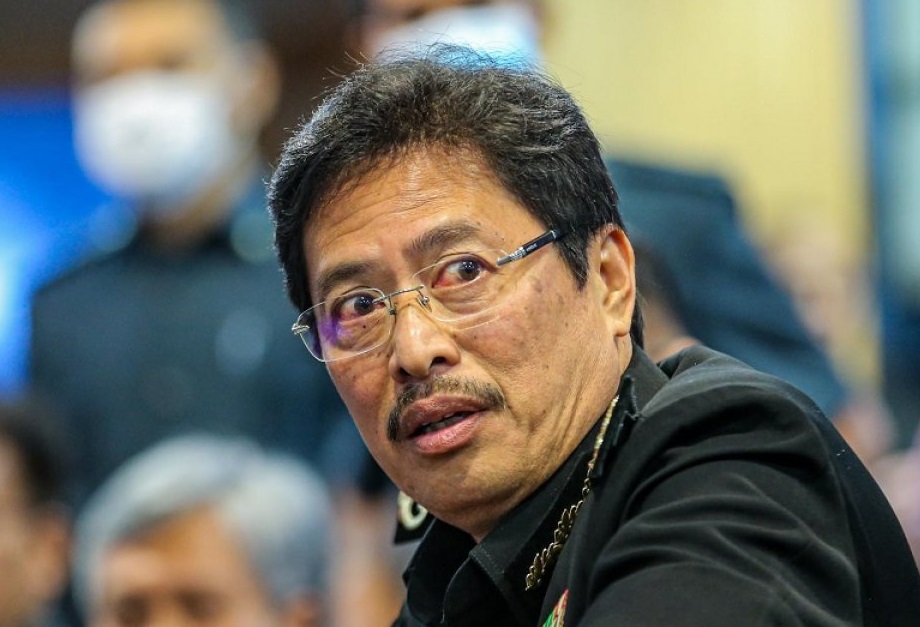
.
By Andy Hall
KUALA LUMPUR, Malaysia--The hard truth for some Malaysian politicians to face is that challenges of forced labour facing Malaysia and its key migrant labour intensive export industries for the most part start and finish in Malaysia.
It is wrong to place primary blame for such gross human rights violations as forced labour on source countries of migrant workers.
But this is exactly what Human Resources Ministers Datuk Seri M. Saravanan and Plantation Industries and Commodities Minister Datuk Zuraida Kamaruddin continued to do at the Human Resource Development Corp’s national forum on forced labour in Penang last week.
The responsible line ministries in Malaysia are not aligned with one harmonious Government policy on ethical manpower recruitment and protection of migrant workers. This is despite much acclaimed and lofty commitments laid down in Malaysia’s national action plans on forced labour, human trafficking or business human rights.
Each ministry seems to have their own objectives, ‘interests’ and supporting actors to satisfy during overseas negotiations on migrant worker memorandums of understanding (MOU) and specific modalities for new migrant recruitment.
There is no long term holistic migration policy in Malaysia that equally and rationally balances human, economic and national security concerns that are crucial to effective migration management and decision making.
All indications are that we will see more corrupt and extortionate migrant worker recruitment practices re-commencing in the near future (this has already started with workers returning to Malaysia).
Unnecessary, bloated and repetitive health testing, visa issuance, quota approval and security checking processes are again being entrenched in Malaysia and in source countries.
The Foreign Workers Centralised Management System (FWCMS) system – a privatised system created by Malaysia and imposed unilaterally on source countries by Malaysia – seems to be totally compromised.
This will again lead to high levels of debt bondage and forced labour for desperate and vulnerable new recruits into Malaysia. These workers simply seek a better life for their families, while toiling for the most part involuntarily in a foreign land to them all.
But we could also as easily see a new beginning for Malaysia today. A future with fairer and more ethical migrant worker recruitment models developed by honest political leadership and industry actors.
Responsible migrant worker recruitment could as easily equally benefit all the countries concerned, the industries, the agents/actors and the workers. Such recruitment could also enhance the rule of law and put an end to the impunity, syndicates and corruption of the past.
Bleak future
Unfortunately, few signs of much ethical recruitment of migrant workers are appearing to most observers today.
We see only more gloom with alleged syndicate leaders active to ensure a lining of their pockets (and that of their political supports) through profiteering, extortion and a lack of transparency that will surely lead to migrant workers again being fleeced.
All the key actors and decision makers still seem to be out to profit for themselves at the expense of vulnerable migrant workers desperation. Malaysia’s foreign worker recruitment systems must change, and should change now. The status quo is unacceptable.
The blame for this mess starts and ends with Malaysia. And only once Malaysia cleans up its own mess should the focus move to the challenges faced in source countries with their own recruitment systems and actors.
It also remains baffling that minister Saravanan continues to try to justify his insistence to limit the number of manpower agencies who can recruit for Malaysia. He still is stating that this limit on a free market on migrant worker recruitment is his genuine intention to prevent Malaysia becoming a ‘dumping ground’ for forced labour victims.
His argument is either nonsensical, self-serving or demonstrates his complete lack of understanding of the root causes of unethical recruitment, debt bondage and forced labour of foreign workers. These root causes start and end with the syndicates and systems unilaterally imposed by Malaysian politicians on source countries.
I have shared several times with both Minister Saravanan and Minister Zuraida an electronic copy of a 10-page easily digestible academic study entitled Transnational Culture of Corruption in Migrant Labour Recruitment. I hope they read it and change their public statements on this topic.
*Andy Hall is an independent migrant worker rights specialist*








0 Comments
LEAVE A REPLY
Your email address will not be published